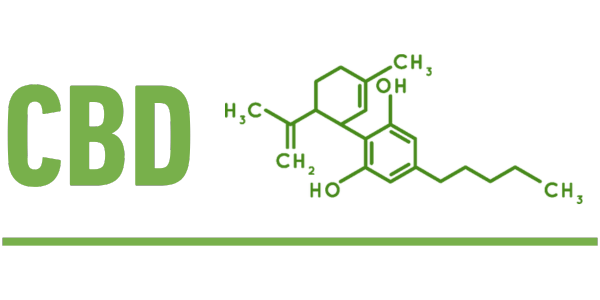Top 7 Cannabinoids You Should Know: THC, CBD & Beyond
What are Cannabinoids?
Cannabinoids are natural compounds found in cannabis that interact with the body’s endocannabinoid system. While THC and CBD are the most well-known, many others contribute significantly to the plant’s unique effects. Here’s our list of seven major cannabinoids you should know to enhance your cannabis experience. At SoulFlora, we're dedicated to educating our community, helping you make informed decisions about your cannabis journey.
1. THC (Δ9-Tetrahydrocannabinol)
THC is the most widely known cannabinoid, recognized for producing the psychoactive “high” that cannabis is often associated with. However, its effects extend far beyond recreation. THC plays a powerful role in pain relief, appetite stimulation, sleep enhancement, and mood elevation. It interacts with the body’s endocannabinoid system, particularly the CB1 receptors in the brain, to influence perception, coordination, and mood.
EFFECTS:
- Relaxation
- Euphoria
- Pain relief
- Appetite stimulation
- Anti-nausea
BEST FOR:
- Recreational enjoyment
- Medicinal relief from pain
- Stress reduction
- Stimulating appetite
2. CBD (Cannabidiol)
CBD is a non-intoxicating cannabinoid that has gained mainstream popularity for its calming, anti-inflammatory, and wellness-enhancing effects. Unlike THC, CBD doesn’t produce a high, making it a versatile option for a wide range of users. It's commonly used to reduce anxiety, improve sleep, and manage chronic pain or inflammation. It also has neuroprotective qualities and supports overall balance in the body.
EFFECTS:
- Anti-inflammatory
- Anxiety relief
- Seizure control
- Reduces inflammation
BEST FOR:
- Managing anxiety
- Chronic pain relief
- Stress reduction
- General wellness
3. THCA (Tetrahydrocannabinolic Acid)
THCA is the raw, non-psychoactive form of THC found in live cannabis. When heated, THCA converts into THC through a process called decarboxylation. In its raw form, THCA shows great promise for wellness, offering anti-inflammatory, neuroprotective, and anti-nausea properties. It’s increasingly sought after for its potential benefits without the intoxication associated with THC.
EFFECTS:
- Anti-inflammatory
- Neuroprotectant
- Pain management
BEST FOR:
- Non-psychoactive inflammation relief
- Chronic pain management
- Decarbonization
4. THCV (Tetrahydrocannabivarin)
THCV is a unique cannabinoid known for its energizing and appetite-suppressing qualities. While it shares structural similarities with THC, it typically doesn’t cause a high at common doses. THCV is increasingly popular among those seeking mental clarity, appetite control, and blood sugar regulation. It’s often considered a “daytime” cannabinoid thanks to its uplifting effects.
EFFECTS:
- Mildly psychoactive
- Appetite suppression
- Blood sugar regulation
BEST FOR:
- Weight management
- Diabetes control
- Enhanced focus
5. CBN (Cannabinol)
CBN is a mildly psychoactive cannabinoid formed as THC ages. It’s most commonly used for its deeply relaxing and sedating effects, making it ideal for nighttime use. It also carries antibacterial and anti-inflammatory benefits. While research is still ongoing, CBN is gaining attention as a natural sleep aid and wellness enhancer.
EFFECTS:
- Sedative
- Pain relief
- Antibacterial
BEST FOR:
- Sleep improvement
- Chronic pain relief
- Fighting infections
6. CBG (Cannabigerol)
Often called the “mother cannabinoid,” CBG is the compound from which other cannabinoids are synthesized. Non-psychoactive and gentle in effect, CBG has been shown to support mental clarity, reduce inflammation, and promote overall well-being. It interacts with a wide range of receptor systems, making it a versatile option for users seeking balance without a high.
EFFECTS:
- Anti-inflammatory
- Mood elevation
- Neuroprotectant
BEST FOR:
- Mood enhancement
- Reducing inflammation
- Supporting neurodegenerative conditions
7. CBC (Cannabichromene)
CBC is a non-intoxicating minor cannabinoid that exhibits robust anti-inflammatory, analgesic, neurogenic, and antibacterial activity in preclinical models. Research supports its effect on TRPV receptors and inflammatory signaling pathways, positioning it as a versatile therapeutic compound for pain, mood, skin conditions, and brain health.
EFFECTS:
- Anti-inflammatory
- Mood-boosting
- Pain relief
BEST FOR:
- General wellness
- Inflammation relief
- Supporting mood and cognitive function
Understanding Your Endocannabinoid System
Cannabinoids interact directly with your body's endocannabinoid system (ECS), a crucial network responsible for regulating vital physiological processes such as mood, sleep, appetite, and immune function. Understanding these interactions allows you to optimize your wellness through informed cannabis choices.
At SoulFlora, our certified budtenders are here to guide you through your cannabis journey. Visit us to ask questions and discover products tailored perfectly to your personal wellness goals.
Visit SoulFlora – Find Your Self.
Disclaimer: This content is provided for educational purposes only and is not intended as medical advice. Please consult a healthcare professional before using cannabis products.








